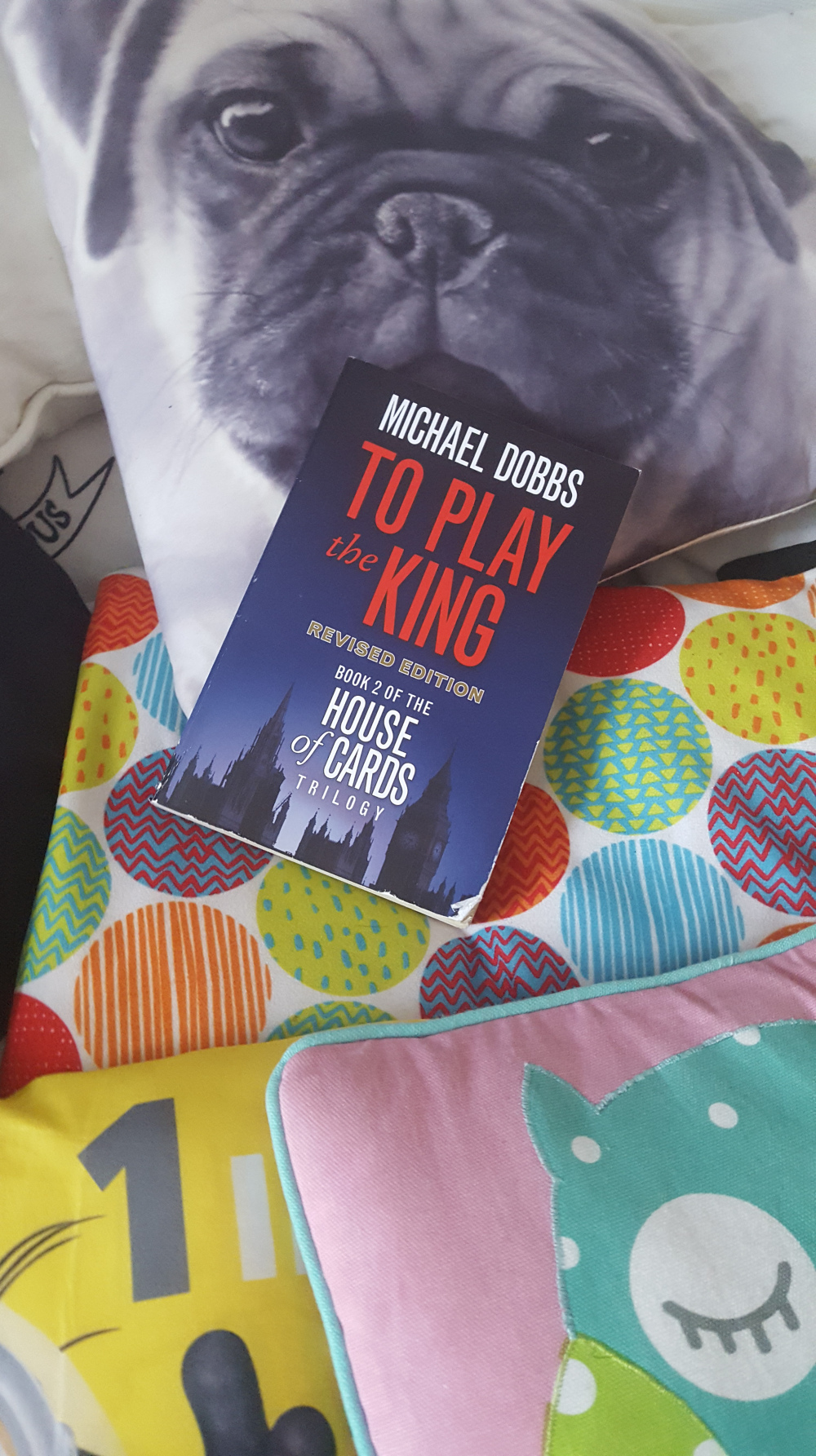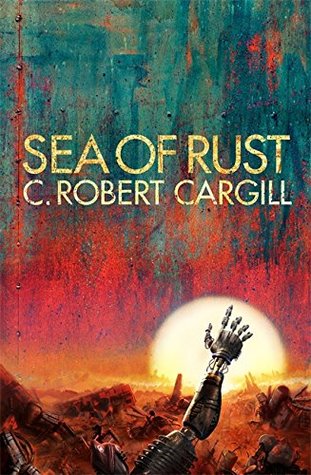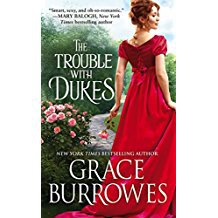
Author: Michael Dobbs
Publisher: Harper
Published: 1992 (this edition 2015)
ISBN: 978-0-00-738517-1
After reviewing the first book in the series here, I’m continuing my review of Michael Dobbs’ House of Cards series, moving on to To Play the King, the second book in the trilogy. Set immediately after the protagonist Francis Urquhart has won his Party’s leadership contest in order to be elected Prime Minister, this novel deals with some of the problems he must solve in the aftermath of his rise to power.
There are things I liked about this novel, as well as a few issues I must raise. Firstly, it must be acknowledged that this is a book that both has, and hasn’t, aged well, with regards to the treatment of the new King’s personal advisor, David Mycroft. One of the novel’s many subplots revolves around his marriage breaking down after 20 years, and his subsequent realisation that he is gay, after meeting a new, male partner. In many ways, this is quite a progressive book for the time it was written, as the pair’s relationship is discussed in the same way as others in the book, and Mycroft is depicted as feeling liberated after leaving an unhappy marriage. Equally, it is refreshing to see the King himself portrayed as being accepting of his friend’s sexuality and new partner. However, there are also issues one can raise about the character’s treatment. Urquhart and his cronies, for instance, immediately decide to use his sexuality against him in order to win leverage over the King, with whom they are in disagreement, by suggesting that he allowed Mycroft to deceive him about his personal life, attempting to create a scandal in the media. One can’t help but think that this ‘scandal’ would still be included if the book had been written today, as it is essential for the subplot, although readers must question whether it is in poor taste in a society where most decent people no longer see ‘coming out’ as a big deal, due to the way it marks out Mycroft’s sexuality as ‘different’. Paired with some of the terms used to discuss gay people in the novel, this could arguably make it seem quite dated in its attitude to sexuality, yet it must be remembered that the fact Mycroft receives a happy ending is somewhat forward-thinking for the time To Play the King was written.
Another issue that must be raised is, once again, the treatment of Urquhart’s wife Mortima. She may be present more often than in the first novel, yet her role somehow becomes even more stereotypical- as well as being the stereotypical bored politician’s wife, she further risks causing public scandal by embarking on an extra-marital affair, the only predictable way she could threaten her husband’s position. I’m no passionate feminist, but the scene where Urquhart shamelessly criticises her behaviour, but only confesses to his own affair when she confronts him directly, just made me cringe. And did Dobbs really have to include a section illustrating how her main concern about relocating to Downing Street was its unfashionable décor? Last time I checked the copyright page of my copy of To Play the King read 1992, not ‘the Stone Age’.
However, readers will bristle slightly less at the treatment of pollster Sally Quine. It may induce a cringe or seven to hear the description of how Urquhart uses her sexually, viewing her as little more than an object, yet it is refreshing to see her fight back, with the end of the book showing that she is not as willing to excuse such treatment as one might presume at a glance. As a character, I found her just as immoral as Urquhart himself, but even less charismatic than him, making her downright dislikeable. If Mortima is intended to satirise the long-suffering politician’s wife, then Sally, plotting and scheming as she helpfully ‘adjusts’ Urquhart’s poll results, can be argued to be the typical power-hungry career woman, who is most definitely prepared to ‘lie back and think of England’ in order to achieve her aims. Love or hate the character, she is more than a match for the intellects of her male colleagues.
And now for the character you’ve all been waiting for- Urquhart himself. Of all the three books in the House of Cards series (a review for the third instalment will be coming after this one!), this depiction of Urquhart is definitely my favourite as, for the majority of the novel, he is shown at his most powerful and, as a by-product of this, his most ruthless. He has achieved his aim of becoming Prime Minister, and is preparing to announce a General Election he feels sure to win, fully legitimising his position. Dobbs is able to showcase how secure Urquhart feels in his role and how, as a result of this, he dares to betray old friends, helped by his new Party Chairman Tim Stamper (sadly much less chilling, and thus memorable, than his TV counterpart Doug). This is definitely the tyrant at his most tyrannical, as he pits himself head-to-head against the King himself. Compared to the first novel in the series, this incarnation of Urquhart, who no longer has to worry about his crimes being discovered and stopping his ascension to power, is much more similar to the TV series’ evil Frank Underwood. As ever, Dobbs, possibly due to his own experience of working alongside career politicians, is able to create an extremely realistic, and therefore terrifying, voice for Urquhart, really giving the audience an insight into how his mind works, whether he’s attempting to manipulate Sally or score political capital over the King.
Yet, by the end of the novel, we are treated to another, new incarnation of Urquhart- an Urquhart who is no longer convinced of his immortality, a man whose career’s work seems about to be undone. Seeing him panic is one of those rare moments that reveals him as a human being, and actually prevents the novel from becoming too unrealistic, by reminding us that he can, in fact, make errors. Having seen Urquhart at the top of his game, it’s intriguing to get to see him at his bottom, and it does provide us with a vindictive sense of pleasure to see one of his many schemes backfire.
Turning to the actual plot, more of the novel’s problems soon become apparent. Whilst its predecessor House of Cards was far-fetched, it continually managed to leave readers feeling its events were just about possible- a feeling that is little more than a distant memory by the end of To Play the King. At first, the plot seems relatively sane: a newly elected Prime Minister wishes to call a General Election in order to legitimise his premiership, but first intends to win the support of the recently crowned King. Said King proves to be little more than a forgettable, pretentious character, with many bright ideas about how to help a people he barely knows (Dobbs claims the character wasn’t intended to satirise any current member of the British royal family… I’ll let you be the judge of that!). The aforementioned ideas about helping people cause controversy when Urquhart decides to edit a speech the King is planning to deliver, making its content much less political. The King reacts (or rather over-reacts) with disdain, and the two are soon embroiled in a competition to win over the public, both trying to show their ‘care’ for ordinary people. In the process, Urquhart resorts to his usual dirty politics, naming and shaming many people who are close to the King. My problem with all of this was that, given Monarchs are supposed to be politically neutral, it seemed far too unrealistic to suggest that one would show his rivalry with the Prime Minister so openly as they try to out-do each other by showing care for humanitarian causes, or, by the end of the novel, risk implicating himself so heavily in the plot to destroy Urquhart. And on a different note, taking it back to the beginning of the novel, I simply can’t believe it didn’t open with an inquiry into the death of Mattie Storin, given Urquhart was the only person present when she died, and said death occurred on the very day he was named as the new Prime Minister. In short, I would very much argue that the saving grace of this novel is not its plot- it is the fact we finally get to see Urquhart unleash his most chilling side, believing himself to be truly invincible for much of the novel.
Rating: ⭐⭐⭐1/2 (3.5/5)
Advertisements Share this:




